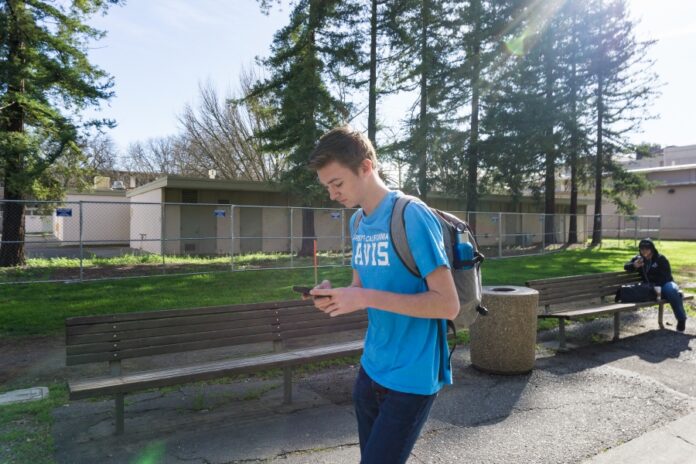The so-called smartphone generation is more than just technologically obsessed
Although I’m not technically a Millennial — I was born in 1998 and missed the cutoff by two years — I’m not really part of Generation Z either. I don’t remember 9/11 but I certainly remember a time before Facebook and Instagram, when the iPod Shuffle first came out and created a new and exciting way to listen to music. Somewhere between the two, I feel I can comfortably speak — anecdotally, of course — on the differences between Gen Z and Millennials by comparing the upbringing of my youngest brother to myself.
Gen Z is deemed the generation of technology, but not in a good way. The connotation for Gen Zers is that they’re so absorbed in their phones that they’ve become psychologically and physically dependent on them. To some extent this is partially true, but technological dependency isn’t Gen Z’s defining characteristic. Technology impacts this generation in other ways. As the only generation to grow up with the smartphone, Gen Zers like my brother are the perfect test case.
Technology made our childhoods quite different. My brother, Adam, never really connected with books. At his age, I used to stay up late reading “Harry Potter,” but Adam stays up late to play video games.
Adam and his friends love video games and often choose to spend most of their free time playing them — alone or online, which, to me, just seems alone.
This past summer I noticed I hadn’t seen much of his friends around. Slightly concerned, I asked my mom why the neighborhood kids weren’t over as much. My mom said when she asked Adam, he simply told her that he and his friends talk to each other online when they play video games, so they don’t have to get together to play.
His response concerned me even more, making me wonder about the ways in which technology might impact how Adam and his fellow Gen Zers perceive human interaction.
Truthfully, I worry Adam spends too much time by himself. In part, I worry about how that might impact his communication skills and later relationships in life, but primarily I worry he isn’t filling his time with the things that make life meaningful. I fear this most because it’s a mistake I’ve made.
Transitioning into high school wasn’t easy. I had spent seven years in Qatar and found myself moving back to a place where some of my peers didn’t even know where or what the Middle East was. I threw myself into school and often passed up nights with friends for “me time” — essentially Netflix and Chill, but by myself. Retrospectively, and with the benefit of having built meaningful relationships in college, I wish I hadn’t let technological entertainment replace time I could’ve spent doing things I would remember today.
My experience seems to be happening for Gen Zers at an even younger age. With Gen Zers growing up never remembering a time before Instagram or the smartphone, they’ve always had a technological replacement for human interaction.
Some think the luxuries of tech make this generation softer, more sensitive. Admittedly, Adam often meets my advice with defensiveness. But he is ultimately a force of compassion, thoughtfulness and curiosity. I see in him the many things of which he is capable and why sensitivity isn’t a bad thing if it means he and his peers care about each other.
Adam is much more concerned about the world than I was at his age and has been ever since he understood that a world outside of himself existed.
At his age, many of my peers were unconcerned with things like gay rights, not necessarily out of malice but out of ignorance. While many of the people I knew growing up still need to learn that using the word “gay” as an insult isn’t okay, Adam and his friends properly ridicule such speech. They don’t reason with prejudice.
He saves spare change for charity, challenges and expands certain family member’s views on gay rights and always speaks up. Whether it’s a kid, adult or even our parents saying or doing things with which he disagrees, he will always be most compelled by his sense of right and wrong.
I see this in his friends and our young cousins, who can’t stomach bullying or witnessing others be excluded from the group for their differences. They care about others, not just those like them.
Adam embodies the tolerance and acceptance reflected in the rest of his generation. They accept people’s differences in a way that missed the masses of previous generations. In a way, the immediate access to information provided by tech is creating a more unified, idealized notion of social equality.
Having only known an ever-evolving technological world, Gen Z is not the generation of tech addiction — it’s the generation of progress. Personally, I can’t wait to see what Adam and his generation will accomplish.
Written by: Hanadi Jordan — hajordan@ucdavis.edu
Disclaimer: The views and opinions expressed by individual columnists belong to the columnists alone and do not necessarily indicate the views and opinions held by The California Aggie.




